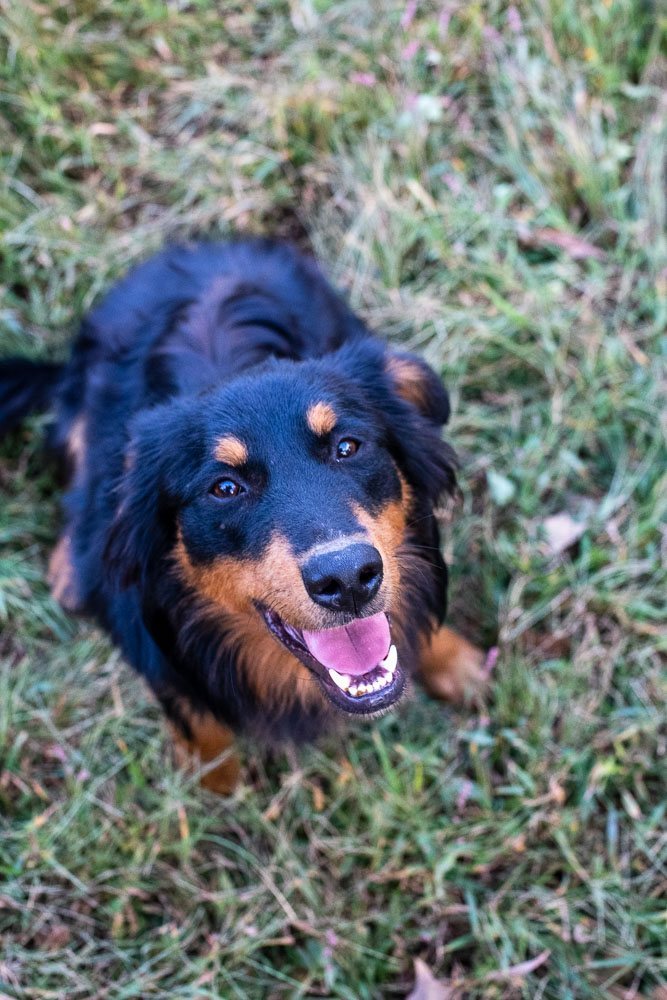Elvis is a two-year-old rescue. After getting his parasite load eliminated, his nutritional deficiency in balance, and his canine-human trust restored, Elvis and his handler started working on basic obedience and manageability. Operant conditioning is a new concept to Elvis, but he is an enthusiastic learner and accepts the training well. Early in the process, Elvis developed the undesirable behavior of hitting his handler’s hands with his opened mouth. Elvis is a playful dog, and mouths with a relaxed body and face. After a functional analysis, it was determined that Elvis’ mouthing behavior is done in anticipation of getting a food treat.
Dog Situation
- Elvis is a two-year-old dog who is new to operant conditioning.
Dog Behavior
- To ask for a food treat, Elvis mouths his handler’s hands with his open mouth.
Trainer Response
- The trainer recommended using Differential Reinforcement of Incompatible Behaviors (DRI) to extinguish the undesirable behavior and replace it by reinforcing a desirable one.
- To extinguish the undesirable behavior, when mouthing situations are anticipated the handler places his hands behind his back, out of reach and out of sight. The dog is immediately cued to sit, and immediately rewarded for doing so. The food treat is given, and the handler quickly returns his hand behind his back.
Results/Consequences
- After several sessions, Elvis has learned to ask for a treat by sitting in front of his owner instead of hitting the owner’s hands with his mouth. In most cases, he now sits instead of mouthing, but the process will be continued on a continuous schedule of reinforcement for several weeks, and then moved to a variable schedule of reinforcement.

